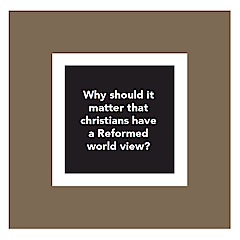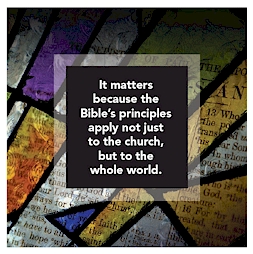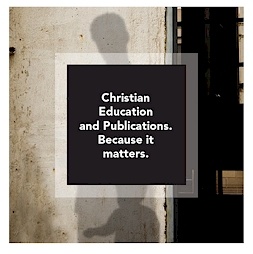WIC Core Curriculum
Q. What is it?
A. The WIC Core Curriculum is written for the specific purpose of teaching a biblical philosophy of womanhood and some of the corporate implications of that philosophy. These corporate implications give definition and focus to a women’s ministry in a local church. One implication is that woman’s helper design equips us to cultivate community and to be channels of compassion in our homes and churches. There are five components to the curriculum, and each book has a Leader’s Guide.
Leadership For Women In The Church
The objective of this book is to help women explore the benefits of a WIC ministry, to design a WIC ministry on the foundation of the philosophy of ministry on page 3, and to train a leadership team for WIC.
Spiritual Mothering, The Titus 2 Mandate for Women Mentoring
Women. This study is designed to teach women the biblical model for women nurturing women to live for God’s glory and to help build covenant relationships between women, thus building community among women in the church.
By Design, God’s Distinctive Calling For Women
Spiritual mothering relationships should be the launching pad to equip women for ministries of mercy. This study teaches women about our creation design and equips us to cultivate community and to be channels of compassion.
Treasures of Encouragement.
The purpose of this book is to reinforce the previous studies, to teach women the biblical ministry of encouragement, and to show them how to be encouragers. This study is a catalyst for women to have such a ministry of encouragement that our churches will be known by the “faith we have in Christ Jesus and the love we have for one another.”
The True Woman
This study reinforces the entire curriculum by refocusing on redemption, our call to reflect our redemption in all of life, and the necessity of sound theology to be and do what we have been called to be and do.
Q. Why did WIC develop a core curriculum?
A. First, our denomination is committed to the biblical concept of connectionalism. This connectionalism runs deeper than commonality of location, personal interests, or personal preferences. We are bound to one another by a commitment to a theological standard that extends to what we believe and how we behave. God’s Word is our rule for faith and practice, so we must have a biblical apologetic for all activities and programs. Therefore, in our WIC ministry we are not event/
program-driven, but theology-driven. This commitment to theological integrity in crafting a women’s ministry compelled us to develop a philosophy and then to begin an educational process among women.
Second, as we looked over existing materials on women’s ministries, we found nothing from a distinctly Reformed perspective. We had to prioritize. We can’t do everything, but we felt the most urgent need was to produce materials that teach women the whys and hows of a women’s ministry within the context of our doctrinal standards.
Q. So you see this as part of a program of Christian education?
A. Absolutely. The WIC ministry is part of the ministry of Christian Education. If we are going to have a WIC ministry, we must know why we do what we do, that reason must be rooted in Scripture, and it must be taught to women. This is part of the Christian education of God’s covenant family. It is because of our commitment to Christian education that we developed extensive leaders’ guides for each study. The leaders’ guides are actually teacher training tools that are designed to help women become more effective teachers.
Q. Is it working?
A. There are strong indicators that our quest to understand our female design and calling has helped to unify PCA women and to propel us into greater service in the church. We receive thrilling letters about how women are growing in their capacity and passion to cultivate community and to be channels of compassion in their homes, churches, and communities. But the true measure of our obedience in developing WIC ministries that are faithful to God’s Word will be seen in the lives of our daughters and granddaughters. Will they be lured into the world’s view of womanhood, or will we tradition biblical womanhood in such a compelling fashion that they will be attracted to the Savior we love and be equipped to serve Him as virtuous women?
Q. What about other WIC studies? Are they not part of the core curriculum?
A. A new WIC study is produced each year, but all of these are not part of the core curriculum. The core curriculum is specifically designed to help teach a biblical philosophy of womanhood based on a covenantal perspective of Scripture, and to help craft substantive WIC ministries based on the corporate implications of our understanding of biblical womanhood.
Q. How do you decide what other studies you will produce or recommend?
A. The CEP procedure regarding WIC studies is:
“At this time CEP usually publishes only one WIC study per year. Therefore it is important to be intentional and focused in what we publish.
“In the local church, the WIC circles/Bible studies are a part of the total Christian education program of the church and not the only educational experience the church offers women. The WIC studies should accomplish a specific function in the total educational plan. It is our belief that Titus 2:3-5 provides this focus.
“Carrying out the Titus mandate will involve training women in biblical truth and providing opportunities for women to develop nurturing relationships. This does not mean that WIC studies are limited to this, but it does mean that these issues are dealt with on a regular basis.
“Since CEP is limited in the number of studies we can publish, we feel that at this time our primary responsibility is to offer studies and leaders’ guides that will help churches accomplish the following:
1. Teach the Bible from a covenant perspective with emphasis on biblical womanhood.
2. Provide interactive study opportunities that help women to develop covenant relationships with one another.
3. Suggest ministry ideas that will help women to fulfill their individual and corporate mission.
“We do not know of materials that are addressing these issues from a Reformed perspective. Our commitment is to prayerfully pursue such materials.”
Q. Why does CEP only produce one WIC study per year?
A. Easy answer-money and time. Producing a study is costly and it requires an enormous amount of staff time. Presently, we simply do not have the resources to do more.
Q. Do we really need to study anything but the Bible? Why don’t you just produce Bible studies?
A. This question assumes that the only way to study the Bible is a verse by verse or book by book type study. The books in the core curriculum are Bible studies that focus on a specific topic. A comprehensive understanding of the Bible demands that at times we study a particular portion verse by verse, and at other times we step back and get an overview of what the Bible says about a specific topic such as God’s sovereignty, or redemption, or the covenant, or parenting, or marriage, or biblical womanhood. We have made the decision to produce some topical studies on the specific issue of womanhood because we know that women are taught God’s Word in an expository fashion from the pulpits of our PCA churches. Our WIC studies are designed to complement the pulpit ministry. We also feel the urgency to deal with biblical womanhood because of the influence of feminism in our culture.
Q. Do we have to use the studies produced by CEP?
A. No. We make no assumptions that women will only study the core curriculum or the other yearly studies produced by CEP. These are resources we provide for you. Whether you use them is a decision for the local church. We do advise local WICs to be sure they submit all materials to the elders for approval. Usually this is done by submitting it to the Christian Education Committee which has oversight of all materials used in all programs of the church. This protects doctrinal consistency and it gives coordination to the entire Christian education plan of the church.
Q. Why should PCA women use the WIC Core Curriculum?
A. I will answer that by sharing two letters from women who have used it.
I wanted to share how much I have enjoyed and grown from all the resources the WIC staff has made available to us in the last few years. I began my “women’s ministries” pilgrimage when you came to Covenant Seminary. Even then in my “youngness” I thought, “here is something I truly believe in – biblical principles that will make a difference in women’s lives.” I continued my journey at the National Conference in 1992 and I truly appreciated the risk in exposing the great needs which I knew existed, yet were hidden on our church pews.
I began reading and studying and I have thoroughly appreciated all the books and tapes. I have read all of the “core curriculum” books and listened to tapes. During the reading and studying, the Lord has allowed me the school of experience as well. Both of my parents have died, we had a new baby, made a move and as I look back I realize all the lessons I did learn as He walked with me and as He held me up with the strength I did not have. This school of experience taught personal pain, real depression, grief, compassion…all the things that you addressed in Spiritual Mothering at some level or another.
I must confess that the first time I read Spiritual Mothering I thought, “This is great!” But the second time I read it I thought, “This helps me where I hurt.” Somehow I was spiritually mothered through Spiritual Mothering. The third time I read it I was also teaching it as a Sunday School class -and now I’m finally learning to practice it!
In the middle of the Spiritual Mothering Sunday School class we went to a Regional Conference. This was perfect timing as we are getting ready to organize a women’s ministry program in our small church. The fifteen women who attended now understand the “language” of WIC; and they caught the vision of what women’s ministries can be in the local church as well as connecting on the larger level. We will start Loving Leadership in a few weeks and hope to have a small women’s ministries program that matches us in place by fall.
I have said all of the above to say this-it does work. You have communicated well. And those of us who have listened and read have profited from what the Lord is doing through WIC. It’s like ripples on water that keep going out from the center.
Another sister writes:
. . . My life and relationship to my husband will never be the same. Thinking I had settled many of the “design” issues long ago, the Lord showed me that I still ran my home and expected my husband to “help me” with the day-to-day events. With respect for our God-given elders, we have submitted our women’s ministries to our session. The fruit has been a session that offers clear, strong leadership and a women’s program that has run so smoothly. The entire atmosphere at church has changed as we humbly submitted ourselves to our leadership. What leaders they have become! The Lord is good!
We would never be so presumptous as to say this is the only way to do a women’s ministry. What we are saying is that as your denominational Christian education resource, we feel it is our responsibility to provide you with tools to help facilitate a WIC ministry, and our prayer is that the WIC Core Curriculum does that.
A final word:
The WIC Core Curriculum is not a study to be completed and left behind. It is a way of life. It is a process. The materials should be repeated over and over to incorporate new women as they come into the church and keep the concepts ever before all the women.




 It matters because the Reformation is not just our heritage, but the world’s hope.
It matters because the Reformation is not just our heritage, but the world’s hope. It matters because if we aren’t equipped to shape the world, the world will shape us.
It matters because if we aren’t equipped to shape the world, the world will shape us. Christian Education and Publications. Because it matters.
Christian Education and Publications. Because it matters.